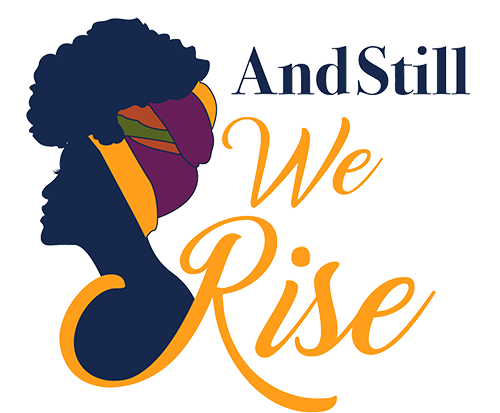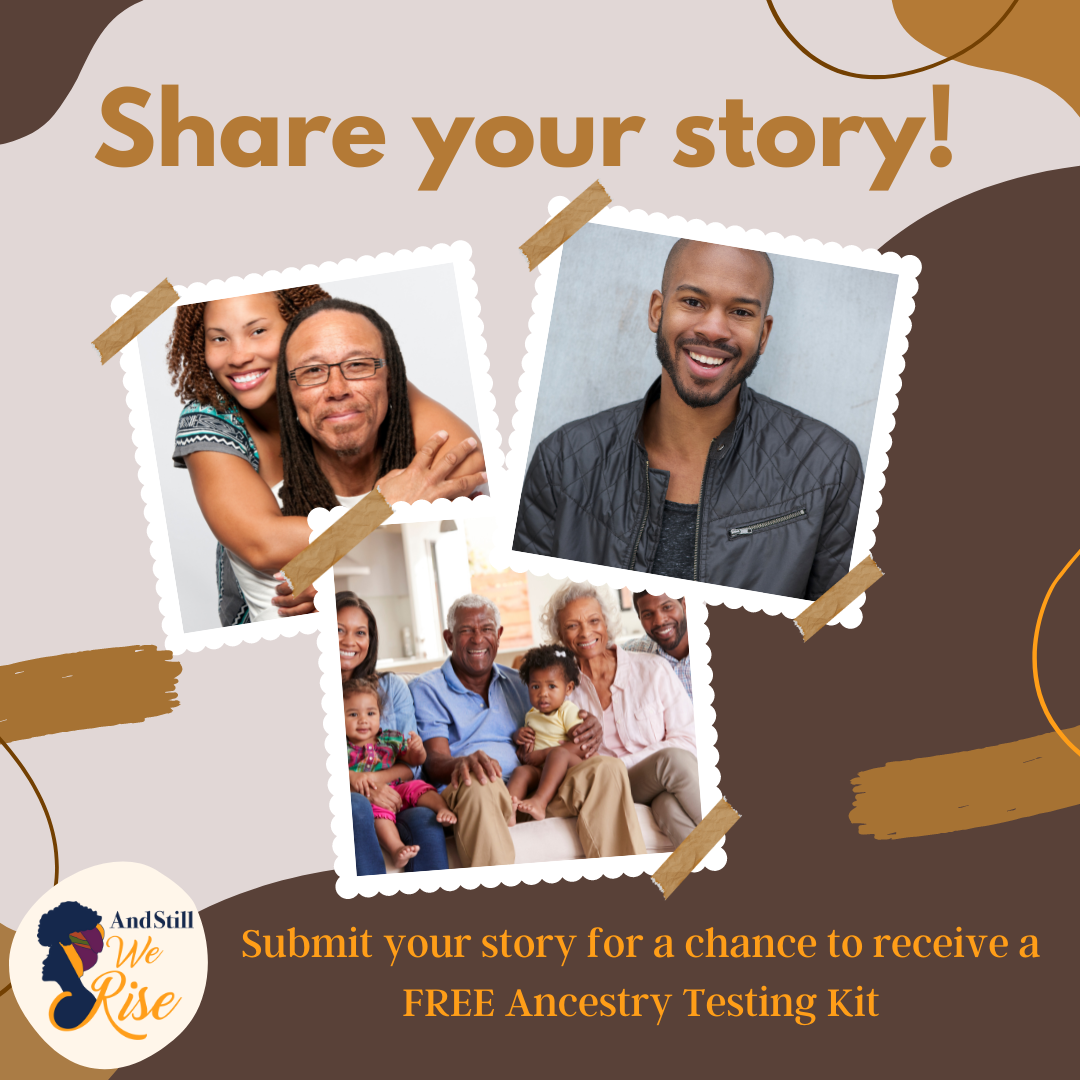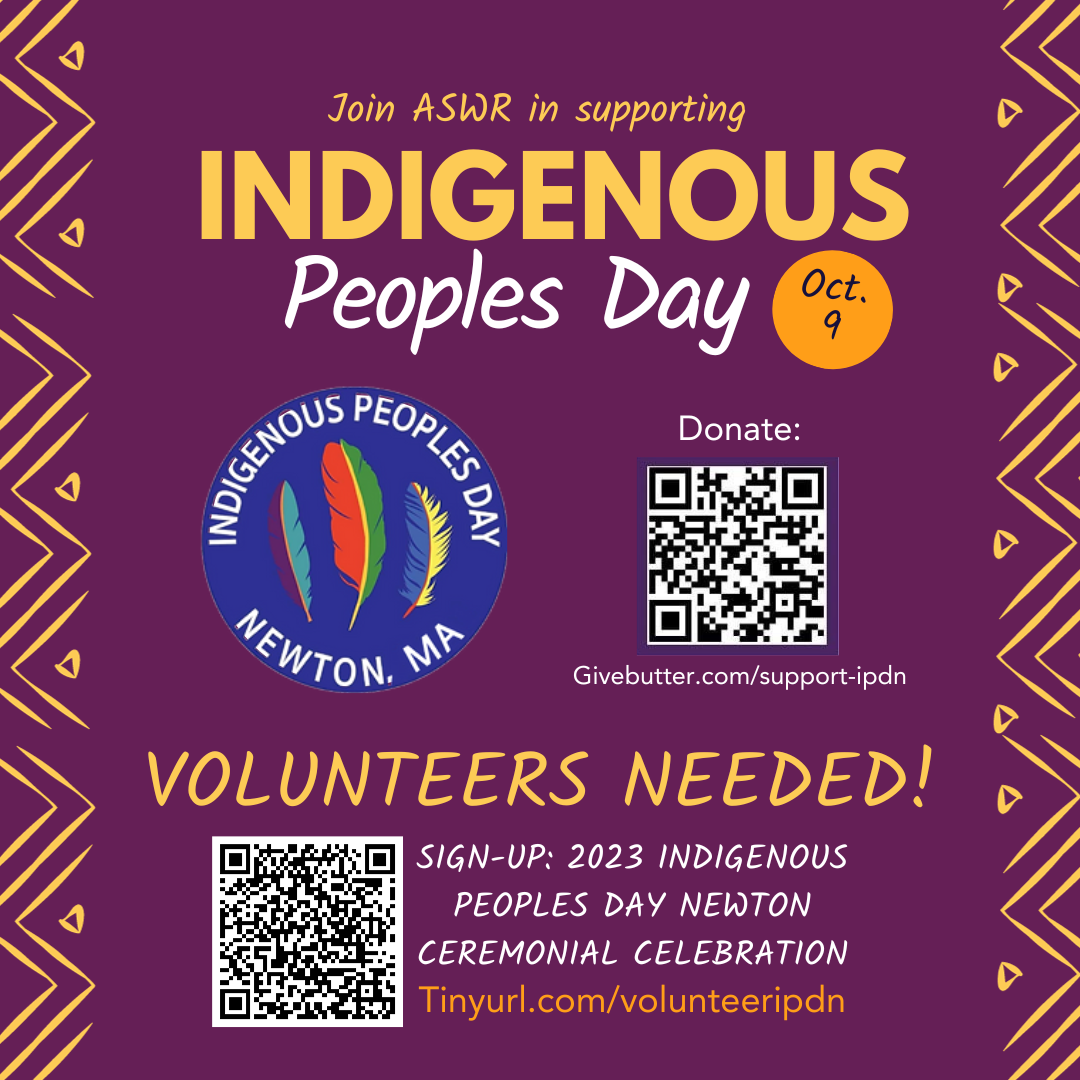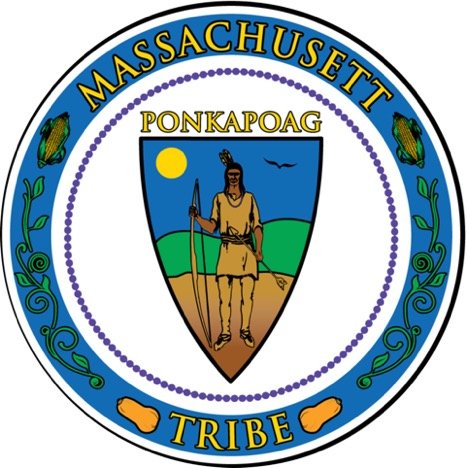Our Causes
A Reparations Campaign: Finding Your Tribal Roots
Our DNA contains information that defines important characteristics such as eye color, hair type, physical attributes, and chemical makeup. As human beings, we value respect, identity, and heritage. Everybody wants to know where they come from and who their ancestors are.
But sadly, for African Americans, tracing our heritage is a challenging and complex task. The transatlantic slave trade from the 16th to 19th centuries is the most significant movement and displacement of people ever recorded. The astonishing numbers meant that the enslaved people and their offspring were their master's property. And just like any property, they were bought and sold at markets across Europe and in the Americas.
With the goal of reparations, And Still We Rise hopes to purchase 100 ancestry kits; support the individual and their family in their journey of healing through processing groups conducted by one of our highly skilled BIPOC psychotherapists; and allow these folx to share their stories and journeys of liberation.
Interested in becoming a recipient? See below on how to share your story.
Share your story…
Our organization, And Still We Rise (ASWR), has launched a reparations campaign to help trace our residents' roots. Our campaign is open to any citizen from Massachusetts or Washington state who identifies as Black and is interested in discovering their ancestral beginnings. We are looking to crowdfund $40,000. The bulk of the funds raised will help purchase 100 genetic testing kits. The funds will also allow us to offer support groups facilitated by our highly qualified BIPOC clinicians.
Share your story of what you do know of your ancestors, as well as what you are hoping to learn by taking an ancestry test for an opportunity to become a recipient of a free ancestry testing kit. Your story can be submitted in written form or as a video (for video submissions, please provide a link when submitting).
Deadline for submissions is TBD
The second round of recipients will be announced TBD.
Past Recipient Stories…
“Growing up, I was one of five black students in a predominantly white suburban school. I have experienced a lot of internalized racism, and there is much that I still have to unlearn. Part of this unlearning involves re-learning my history, not the white-washed version, and the truth about my heritage. My mother was raised by her father, he was an educator in Boston Public Schools, her mother passed, when my mom was 13. My grandfather was not very close with his immediate or extended family, his father, my great grandfather moved to New York from the Caribbean in search for a better life and eventually lost connection with his siblings. With the passing of my grandmother, we also lost countless stories, family connection, and history. One story that my mom does remember is that when my great great grandfather was approached by a slave master, he stood his ground when he began demanding certain things from him. He taught his children, including my grandmother, to understand their worth and think critically. My ancestors were courageous, brave, and knew themselves. My cousins were also fighters. She and her husband fought and were at the forefront of the civil rights movement. Black people, my ancestors, in any time period, even for just existing, could be met with death. Their courage changed the trajectory of my life. But even so, others who I could never meet, their stories have been cut short, or lost simply for these same reasons, speaking up and fighting against oppression. I deserve to know my history, for those who were not able to share it with me.
My dad was born and raised in St. Thomas. He was raised by a black single mother of 8 children, his dad was in and out of the picture. My paternal grandmother was also a fighter, doing the best she could to provide, and instill a sense of belonging with her children. My dad and four of his siblings became entrepreneurs, building successful businesses despite their circumstances, despite the statistics that show what can happen if the family unit is disrupted and despite the oppression and systematic structural racism that continues to take resources from the Caribbean while Caribbean people rely on tourism to survive. No matter our circumstances, our ability to begin with nothing and turn it into a beautiful life is possible. Our resiliency is unmatched.
My ancestors in the United States and Caribbean both experienced the harsh realities of being disadvantaged, but still did not lose their voice. They had a knowledge of self that I often crave and feel disconnected from. Knowing my stories and my ancestry can help restore this loss and bring a sense of peace. I often wonder who I am, I often wonder about my identity. Growing up in the suburbs, I felt isolated and often that I didn’t have a culture. I wasn’t “black enough” for my black peers and for my white peers I was their token black friend. I know now that this feeling is not out of place. America systematically assimilates people into losing their culture in order to fit into the white supremacy society. Specifically with my culture, we were beaten, put to death, separated from family, our native language, and spirituality to assimilate to this culture. I am looking to connect back to my roots and my heritage, to feel whole, to feel that I belong.”
— Recipient, April 2022
“I am a 3rd generation Jamaican American. I feel very estranged from my roots and have had a hard time feeling comfortable with my cultural identity. I often feel "too American for Jamaicans and too Jamaican for Americans" I find myself stuck trying to figure out when/how I can embrace both of my cultural identities without feeling "fake" or unwanted. However, things get more complicated as this is only my mom's side of the family. My father "doesn't know where I came from". This would be affirming for not only me (as I try to find where I fit as a black person) but also for my father. He is 55 and resonates with being stolen from land he feels like he can no longer identify with. A DNA test has been something that I have been considering for years. But, due to financial restrictions I have been unable. If I were to receive a DNA Test it would significantly improve my sense of cultural identity and self-esteem. I would be able to know where I came from and know that my blood does belong somewhere.”
— Recipient, April 2022
Indigenous People’s Day
3rd Annual Indigenous Peoples Day
Ceremonial Celebration
When: Monday, October 9, 2023 (11 am–5 pm ET)
Where: Albemarle Field, Newton MA
Celebrate & amplify Indigenous peoples on Indigenous Peoples Day in Newton, MA.
All are welcome to this free, family-friendly, Indigenous-led, volunteer-run event to enjoy great music, check out cultural dances & presentations, meet local Indigenous vendors & non-profits, & eat delicious food.
For more information about Indigenous Peoples Day Newton, visit https://www.ipdnewton.org/
Pay Rent to the Duwamish Tribe
Support Duwamish Tribal Services through Monthly Giving
Paying monthly rent acts to uplift the Duwamish Tribe as First Peoples of Seattle in the face of the U.S. government refusing to honor the Point Elliott Treaty of 1855. Descendants of European settler families continue to benefit greatly from the resources of the land incorporating the city we know as Seattle. Those of us who are not from the tribes of these lands might benefit in different ways from being here, whether we live, work, or visit this beautiful place. As guests to this land, we can create a story of equity and action instead of being complicit in dishonoring the treaties.
For more information about the Duwamish Tribe, visit http://www.duwamishtribe.org
Donate to Massachusett Tribe at Ponkapoag
The Massachusett Tribe at Ponkapoag are the descendants of the Neponset band of the Massachusett. At the time of the English invasion of their territory early in the 17th century they were led by the Great Sac’hem, Chickataubut. Theirs is the indigenous nation from which the present day Commonwealth of Massachusetts took its name. They continue as the Massachusett Tribe at Ponkapoag.
For more information about the Massachusett Tribe, visit https://massachusetttribe.org




